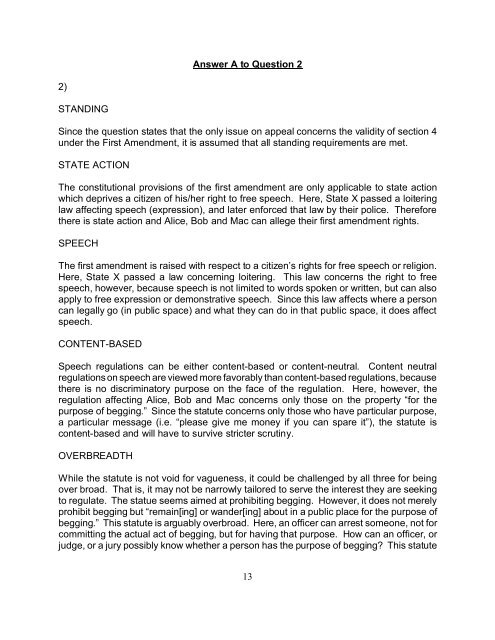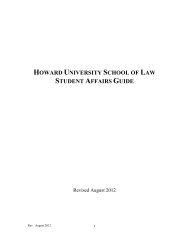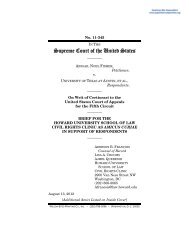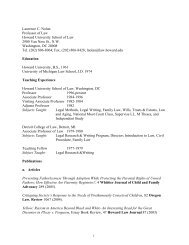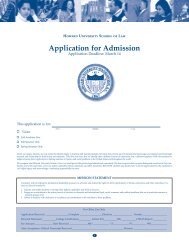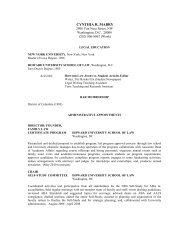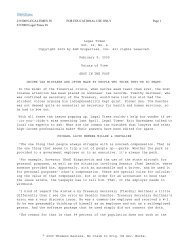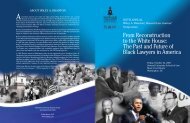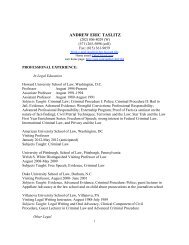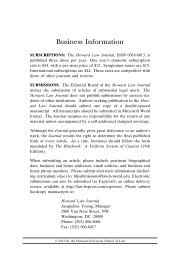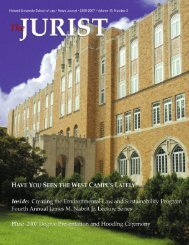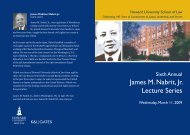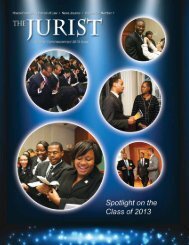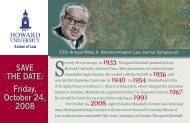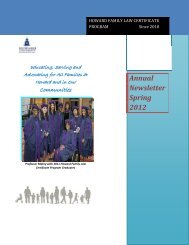Essay Questions and Selected Answers July 2004
Essay Questions and Selected Answers July 2004
Essay Questions and Selected Answers July 2004
- No tags were found...
You also want an ePaper? Increase the reach of your titles
YUMPU automatically turns print PDFs into web optimized ePapers that Google loves.
Answer A to Question 22)STANDINGSince the question states that the only issue on appeal concerns the validity of section 4under the First Amendment, it is assumed that all st<strong>and</strong>ing requirements are met.STATE ACTIONThe constitutional provisions of the first amendment are only applicable to state actionwhich deprives a citizen of his/her right to free speech. Here, State X passed a loiteringlaw affecting speech (expression), <strong>and</strong> later enforced that law by their police. Thereforethere is state action <strong>and</strong> Alice, Bob <strong>and</strong> Mac can allege their first amendment rights.SPEECHThe first amendment is raised with respect to a citizen’s rights for free speech or religion.Here, State X passed a law concerning loitering. This law concerns the right to freespeech, however, because speech is not limited to words spoken or written, but can alsoapply to free expression or demonstrative speech. Since this law affects where a personcan legally go (in public space) <strong>and</strong> what they can do in that public space, it does affectspeech.CONTENT-BASEDSpeech regulations can be either content-based or content-neutral. Content neutralregulations on speech are viewed more favorably than content-based regulations, becausethere is no discriminatory purpose on the face of the regulation. Here, however, theregulation affecting Alice, Bob <strong>and</strong> Mac concerns only those on the property “for thepurpose of begging.” Since the statute concerns only those who have particular purpose,a particular message (i.e. “please give me money if you can spare it”), the statute iscontent-based <strong>and</strong> will have to survive stricter scrutiny.OVERBREADTHWhile the statute is not void for vagueness, it could be challenged by all three for beingover broad. That is, it may not be narrowly tailored to serve the interest they are seekingto regulate. The statue seems aimed at prohibiting begging. However, it does not merelyprohibit begging but “remain[ing] or w<strong>and</strong>er[ing] about in a public place for the purpose ofbegging.” This statute is arguably overbroad. Here, an officer can arrest someone, not forcommitting the actual act of begging, but for having that purpose. How can an officer, orjudge, or a jury possibly know whether a person has the purpose of begging? This statute13


